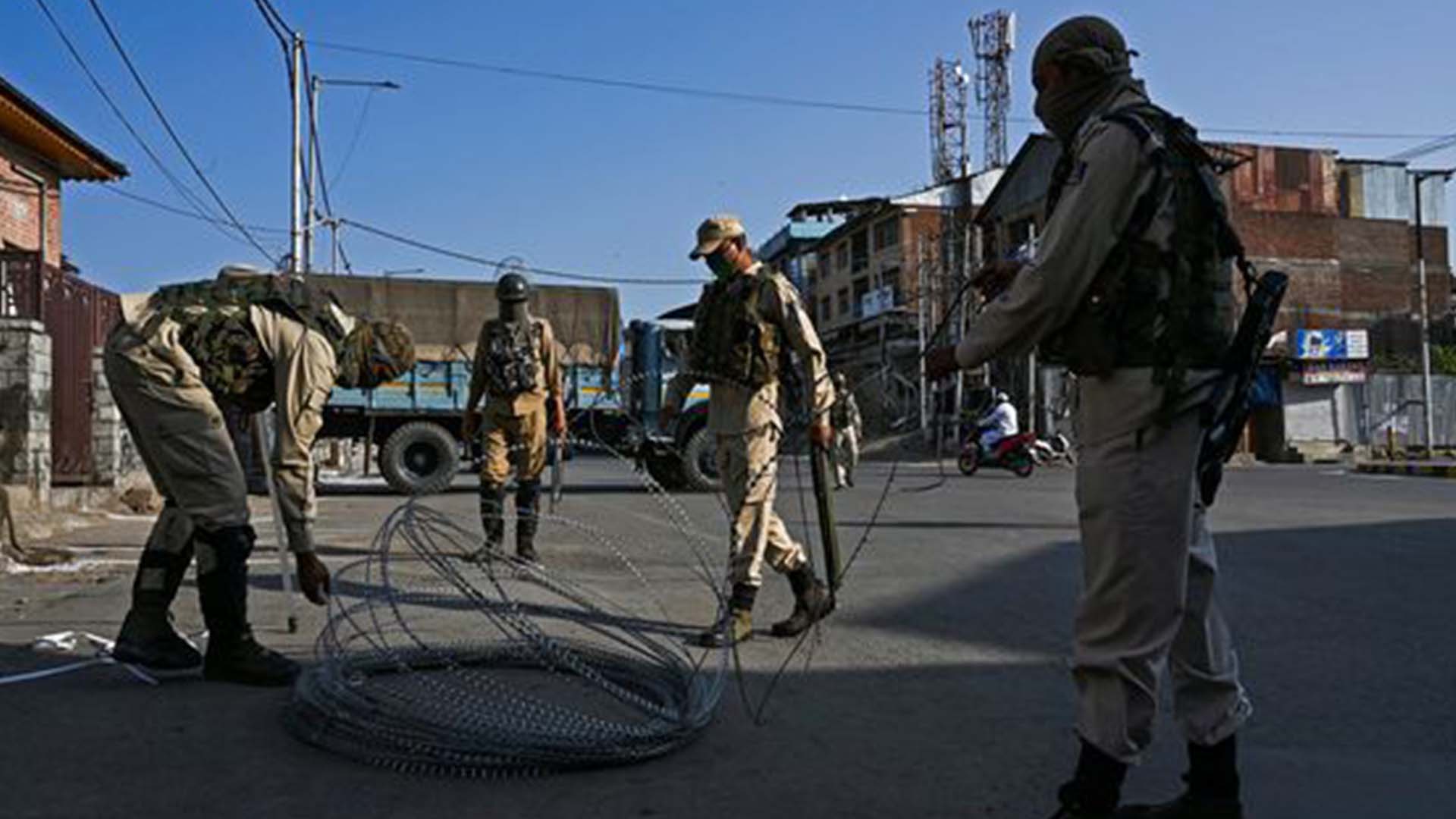4 years ago

Authorities have brought in a curfew in many parts of Indian-controlled Kashmir, one day ahead of the first anniversary of India’s controversial decision to revoke the disputed region’s special status.
Shahid Iqbal Choudhary, a civil administrator, said the security lockdown was put in place in the region’s main city of Srinagar in view of information about protests planned by anti-India groups to mark 5 August as “black day.”
Police and paramilitary soldiers drove through neighbourhoods and went to people’s homes warning them to stay indoors. Government forces erected steel barricades and laid razor wire across roads, bridges and intersections.
The curfew will be enforced on Tuesday and Wednesday, Choudhary said in a government order.
“A series of inputs have been received suggesting that separatist and Pakistan-sponsored groups are planning to observe August 5 as Black Day and violent action or protests are not ruled out,” he said.
Last year on 5 August, India’s Hindu-nationalist government led by Prime Minister Narendra Modi downgraded Jammu-Kashmir status and divided it into two federally governed territories.
Since then, New Delhi has brought in a slew of new laws which locals say are aimed at shifting the demographics in the Muslim-majority region, many of whom want independence from India or unification with Pakistan.
The status of Kashmir has been a key dispute between Pakistan and India since the two split in 1947 after the end of British colonial rule. They each control part of Kashmir and have fought two wars over their rival claims.
Initially, the anti-India movement in the Indian-controlled portion of Kashmir was largely peaceful, but after a series of political blunders, broken promises and a crackdown on dissent, Kashmiris launched a full-blown armed revolt in 1989.
After the 5 August decision, Indian authorities enforced an information blackout and a harsh security clampdown in Kashmir for months. Thousands of Kashmiri youth, pro-freedom leaders and politicians who have traditionally supported Indian rule were arrested. Hundreds of them are still incarcerated.